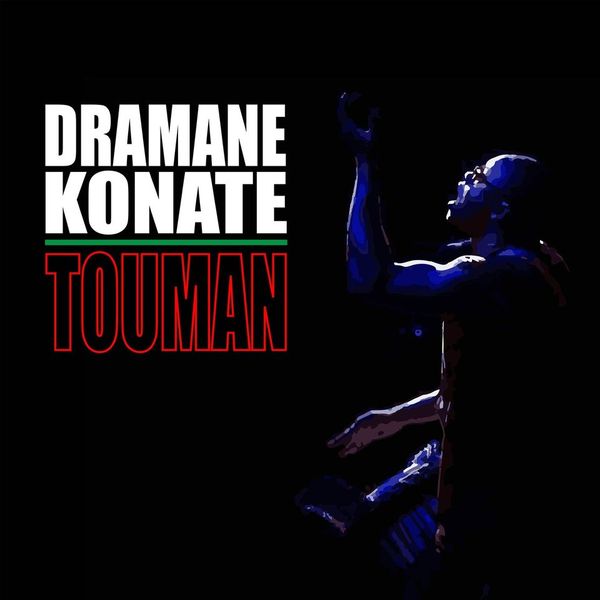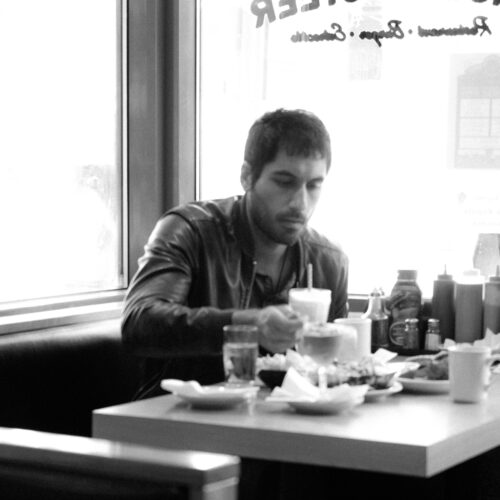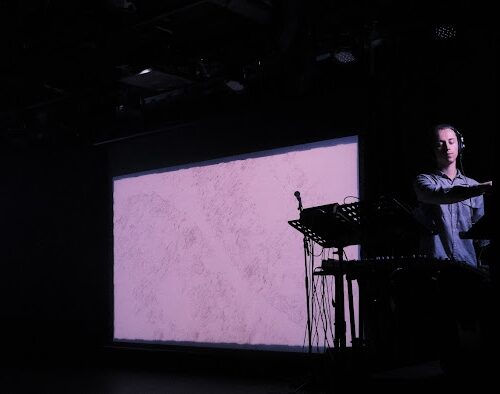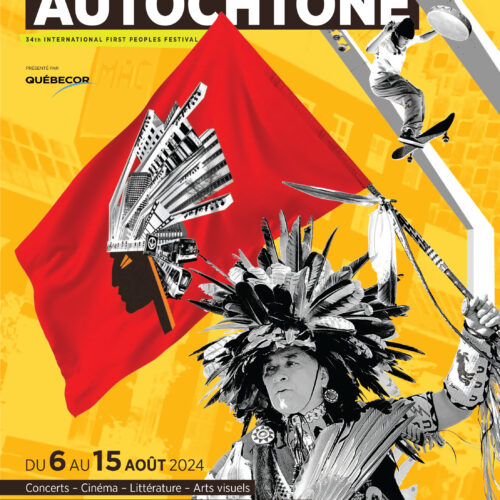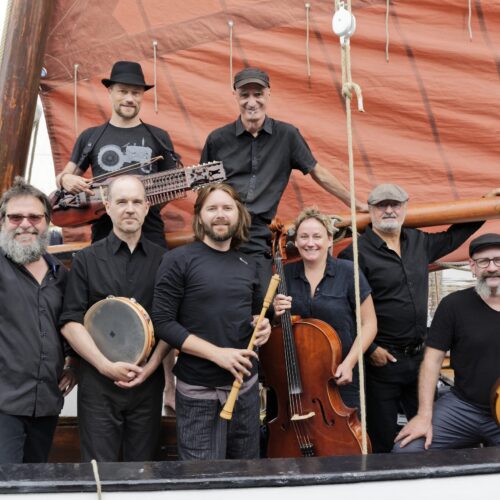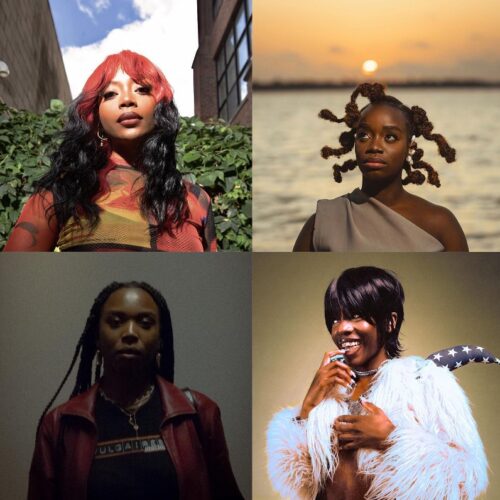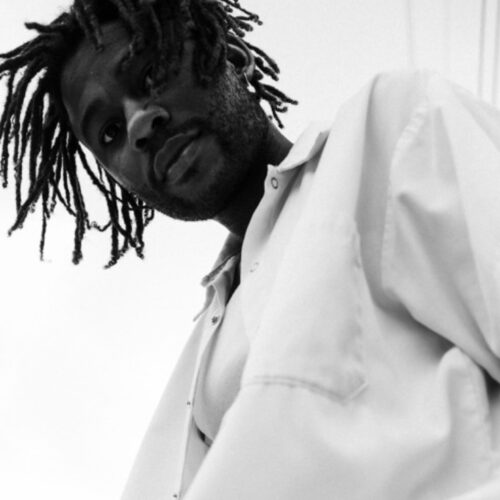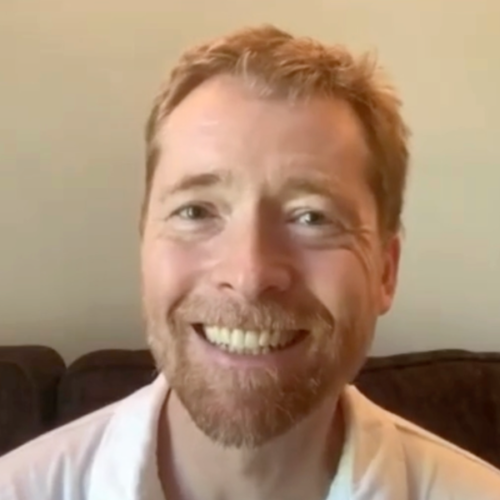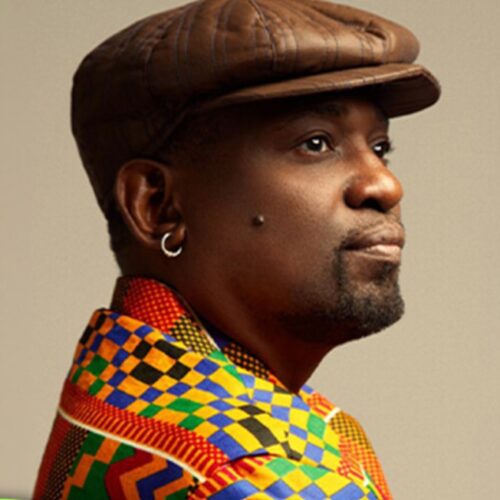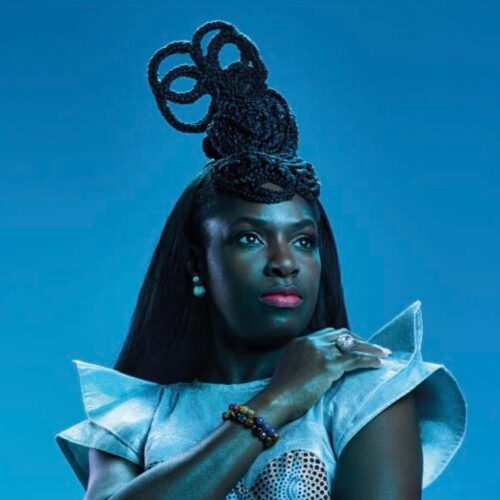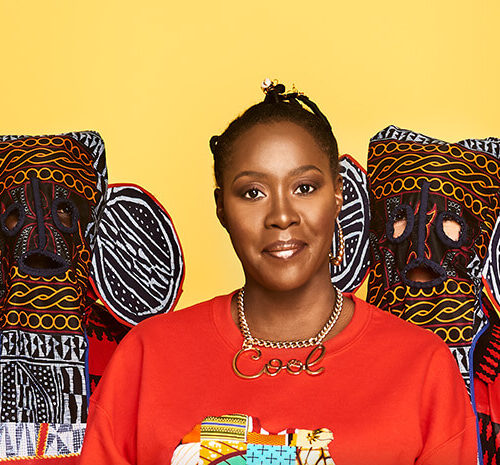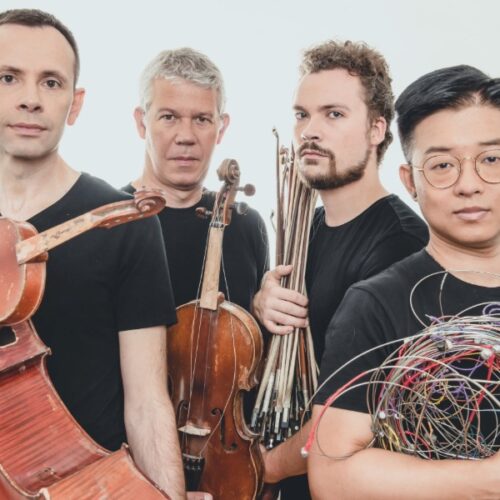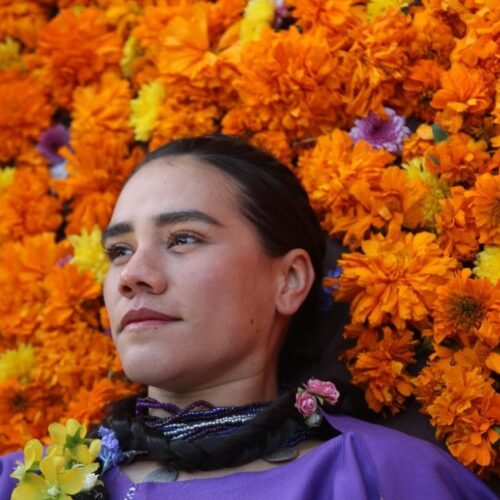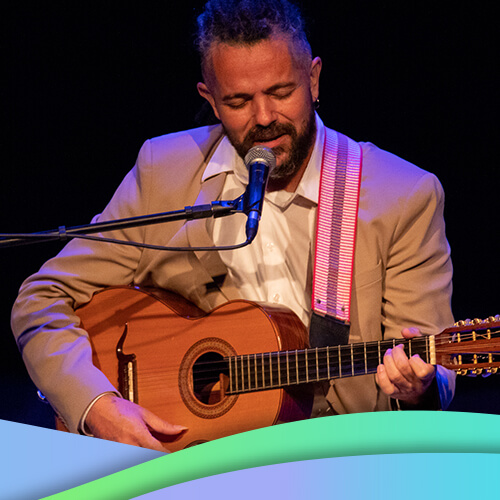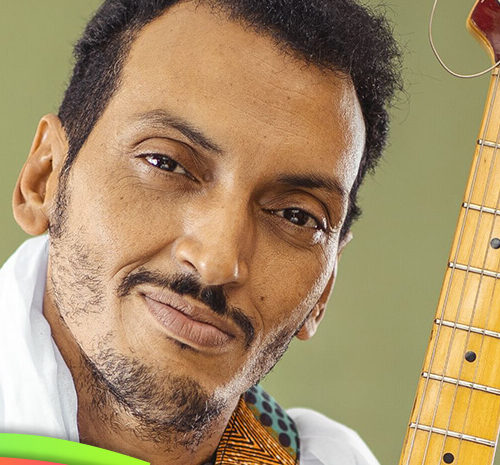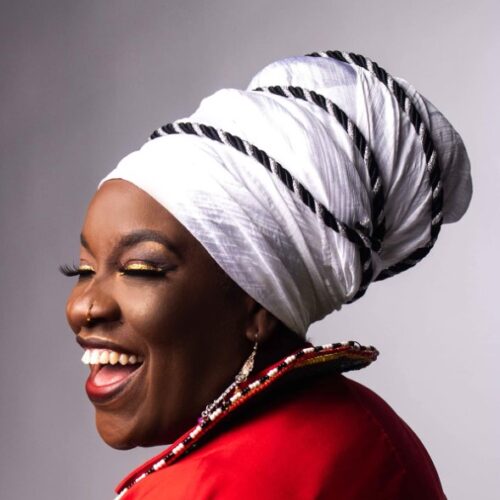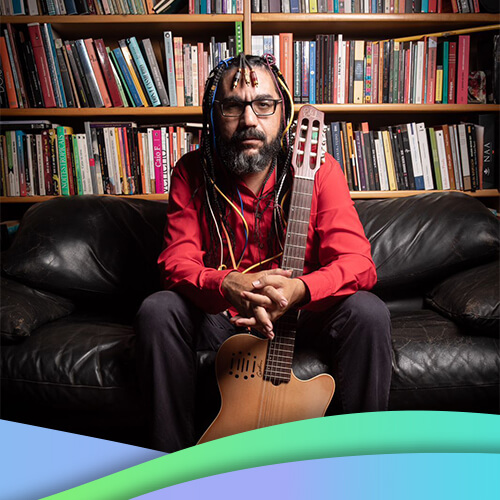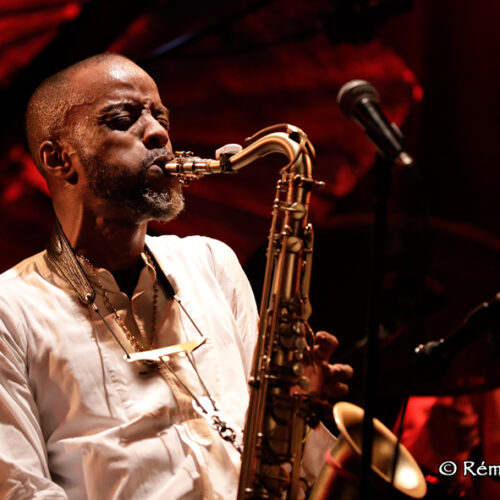Additional Information
Born in Côte d’Ivoire and originally from the “land of upright men”, Burkina Faso, Dramane Konaté masters the djembe like a heart that beats to the rhythm of the world. With his opus Touman (Disques Nuits d’Afrique), due for release on November 3, 2023, the born traveller invites us into a West African immersion for a melodic pause anchored in the perfect moment of listening. His program: twelve songs rich in emotion and rhythm for this undisputed master of Faso.
Read Frédéric Cardin’s Review of Touman on PAN M 360
PAN M 360: First of all, congratulations on your album, Dramane!
Dramane: Thank you, thank you.
PAN M 360: I listened to it this morning and it put me in a great mood. How does it feel to be about to release this album to the world?
Dramane: I’ve got goosebumps. Because for me, it’s a very important album. And it’s also about my personal life. And I also think that this album can resonate with the public and allow them to learn and discover new things.
PAN M 360: Is this your first album?
Dramane: Yes, it’s my first album and I put a lot of work into it. I had to double my efforts because that period was a really complicated time in my life. I was lost and didn’t know where to start. I didn’t really have any hope in music, but in the end, it was a lifesaver: it helped me a lot to express all my pain, all the things I kept inside me, in order to free myself. In the end, making this album turned out to be beneficial and helped me get to know myself better.
PAN M 360: It’s interesting to hear you say that. When I listened to your album, I felt a real sense of catharsis at the end. I can imagine you’ve been working on this album for a long time?
Dramane: It’s been a long time in the making. I did it on my own with everything I earned. Nobody helped me. I did it alone and I was the one looking for artists. I arranged everything. I paid the studios, I paid the artists. I did it on my own because I know that in Africa, back home, artists don’t make a living from that. So you can’t tell an artist to come and make your album or you do rehearsals and then you give them nothing. They need to eat, it’s like their job. So for me, before I did that, I tried to prepare myself a bit for the concert I was doing. I took a bit of money, I put it aside and when I was ready, I called the musicians, we did some rehearsals, I called the studios, that’s it, then that’s it.
PAN M 360: And how did the composition process go? As a djembe player, the rhythm was the basis of all the songs?
Dramane: Yes, but there are songs that aren’t my own compositions. There are melodies, very old ones, that my grandparents would have known, and I’ve added layers of rhythm to them. I tried to really arrange them according to how I react to these melodies, and really understand how I feel about this music.
PAN M 360: Can you tell us a bit about your history with the djembe?
Dramane: I started playing when I was very, very young, at the age of seven, in 1983. My mother sings she loves music and she has a beautiful voice. But in the village where I lived in Côte d’Ivoire, there were no musicians. So you see musicians at weddings, christenings and annual celebrations, and that was my first introduction to music and the sound of the djembe.
As the only musician in my family, I met with a lot of resistance. Especially from my father. He didn’t want his son to play music. Back then, if you said you wanted to be a musician, you had no future. No parent would allow their son to become a musician. He yelled at me, he hit me, he bad-mouthed me in front of people to discourage me from pursuing music, and I knew what music made me feel because my father is a tailor.
Do you know why I gave the album that name? Because every choice has its time. My father wanted me to become a tailor. That was his dream. He did everything he could to make me a tailor. But a problem came up because I can’t see myself very well. I have very serious eye problems. At the workshop, it became obvious that I couldn’t see the needle and thread very well, and my father didn’t help me either. He had the option of getting glasses so I could see or simply sending someone to help me, but he never did. From then on, he wanted me to do something else, and I decided to do something else with my life. My logical choice was music. Because for me, music gave me love. For me, music was love, for me, music was my life. I let all these emotions escape on the djembe.
PAN M 360: You’re from Côte d’Ivoire, but you play music from Mali, is that right?
Dramane: It’s Mandingo music.
PAN M 360: Is it your tradition, in fact, or do you love this musical genre?
Dramane: Yes, that’s my tradition.
PAN M 360: Who or what were some of your inspirations?
Dramane: Do you know Salifou Keïta? He’s from Mali. Salifou Keïta, Toumani Diabaté. There are a lot of artists who inspire me and then there’s a great artist too, Amadou Sodia, who inspired me a lot.
PAN M 360: Have you experimented with other types of music, such as fusion or pop, or is it really traditional music that speaks to you the most?
Dramane: I do a bit of everything. I accompany groups, contemporary dance, modern music, jazz and blues. Yes, jazz inspires me a lot. Jazz is music, and it really brings a lot to me.
PAN M 360: And is there a lot of improvisation in the music you play, like jazz?
Dramane: When I do solos, I take a lot of inspiration from jazz music. Ok. Jazz afro, a bit, everything. Of course I do.
PAN M 360: You speak with a lot of passion, and I imagine your show will be really exciting. For your concert in Montreal, will you be performing the whole album?
Dramane: Yes, I’ll be playing the whole album with a great band. I’ll do my best for November 4. I’m really looking forward to it. Thanks so much for talking to me.
PAN M 360: Is there anything else you’d like to say?
Dramane: I’d like to say thank you. I really salute Papa Touré, Touré du Balattou, he’s really a father who’s given me a lot of advice, I often have advice, I go to him and he’s always taken me as his son, he’s considered me as his son, he’s given me advice and I’ve always felt like my father and I really really wish him all the best again. He really is the baobab, the baobab of all Africans, all Quebecers, all the people here. Really, we hope that God gives them a long life, that artists always manage to express themselves, to give everything we feel, everything we want to come one day, Inch’Allah. We really do. And I salute you too. It’s been a great, great pleasure to “free” myself too. So thank you very much and I also thank René Pierre. Thank you very much.
PAN M 360: Wishing you an incredible show Dramane. Thanks again for taking the time.
